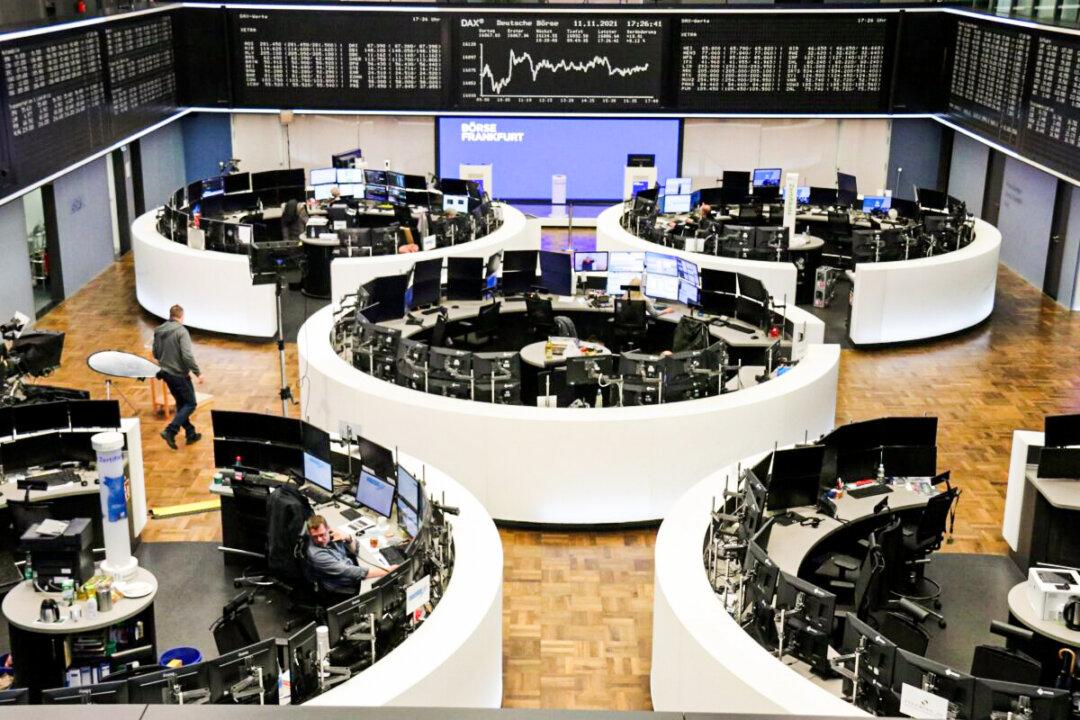LONDON—European shares chalked up new highs on Friday as shock from unexpectedly strong U.S. inflation data earlier in the week eased, though investors kept a wary eye on rising yields as the dollar hit a 16-month high.
The STOXX index of 600 companies was up 0.09 percent, enough to eke out a new record high for a second day running. The CAC 40 French blue chip index in Paris also clocked up a new high.





